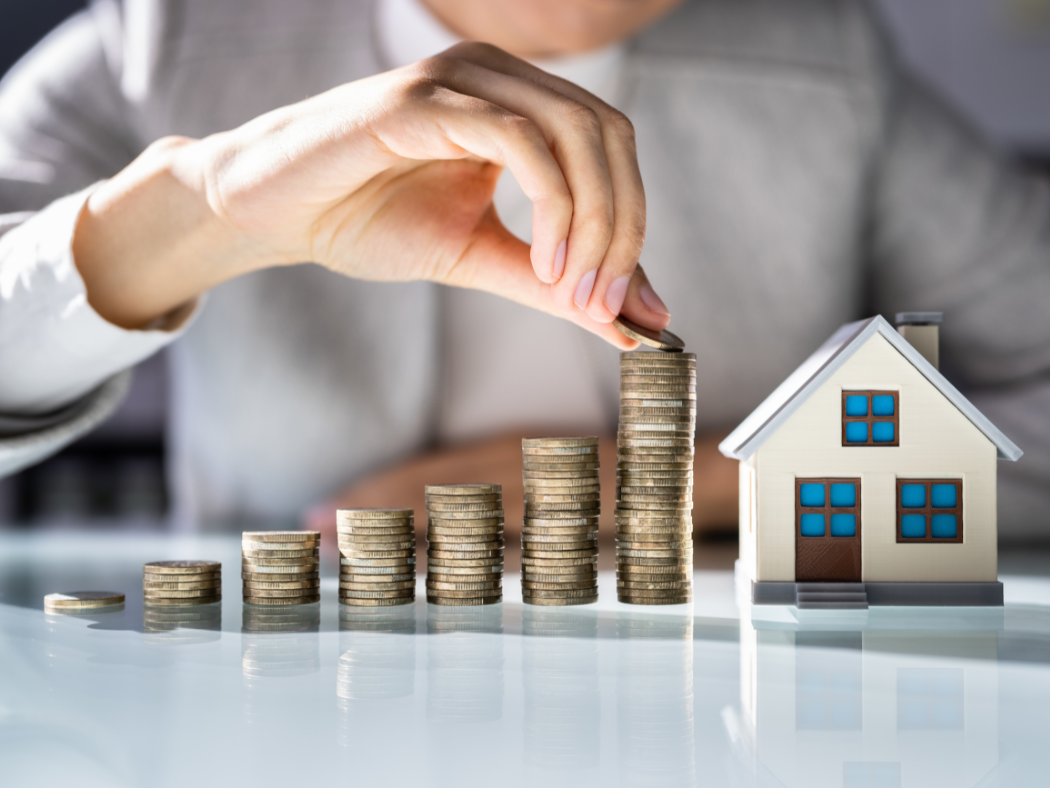What the media WON'T tell you about home prices
Home prices have fallen for the first time in a long time, and we are about to see a shift in the real estate market and economy.
As we know, the media enjoys bad news and sparks more fear. This is exactly why we need to dig into the data and get the full story to see if there are opportunities coming for us.
Today we are going over three things:
How much home prices will fall
What risks are in the market
Opportunities for buyers and investors
How much will home prices fall?
There is a crash in listing prices, with more price cuts in the last three months than any quarter before. So, how much will home prices fall? The answer is a little less dramatic than what the media tells you. Any strong market that is up a lot will have a small pullback, because it is normal and healthy for the long term.
CoreLogic predicts home prices will go sideways and be slightly up when you look at this year versus last year. However, that is on a national basis, and each market is different. If you're in a hot market that spiked super fast, you could see prices spike sooner rather than later.
In those high growth markets, home prices are predicted to pull back about 10% from where they are today within the next 12 to 24 months. What caused these prices to spike in high growth markets was low supply, cheap money, and high demand for housing. Demand growth is due to population and job growth, or because it's just a desirable area.
The cheap money has been taken away, which is cooled off by our demand, but the other factors still exist! Remember, when you look at these declines, you have to look at the final close sales price, not the price the seller asked for.
Another reason why you're seeing demand plunge is because recession fears are driving young home buyers' decisions! Many young home buyers fear that home prices will crash like they did in 2008, and they also feel the market is due for a sharp pullback because home prices are up so much. From 2018 to 2022, the national home price index was up over 43% and in certain growth markets, home prices were up even more! Super cheap money fueled this insane increase and a low supply of homes available for sale. Many people think this created another housing bubble, but if you look at the characteristics of today's market versus 2008, you'll be surprised.
So, what's different?
Taking on way too much debt to buy properties creates housing bubbles. This is called leverage, and in the years leading into the last housing crisis, there was WAY too much leverage. There was hardly any money put down when people bought their houses.
Another reason for a housing bubble is extreme speculation! What I mean by this is, people are buying an asset with the sole purpose of making fast money. Before 2008, real estate was seen as a way to get rich quick, while today, buyers are looking at holding property long term.
It's important to understand that today, Americans are sitting on a record amount of home equity, with most homeowners having more than 20% in their homes. The homeowners in 2008 had very little equity, and when the prices pulled back even a little, they were upside down.
A major difference between 2008 and today is the mortgage lending standards. It is still fairly difficult to get a mortgage compared to how easy it was in 2008 before the market crashed. Lending standards back then were so loose that basically anybody could qualify to finance a home. Today, you have to actually qualify and prove that you can repay the home loan.
The last difference I want to touch on is the supply issue. After the crash of 2008, the number of homes being built went down significantly, and there haven't been enough homes being built to meet the population demands of this country. There are so many Millennials who are forming households and are in the peak home buying years. So regardless of what happens with the economy, there are simply not enough homes to meet the needs of everyone who wants to live in them.
What are the risks?
Before we get into the opportunities, let's get into the one risk factor which could blow this whole thing up.
The main reason for the decline in demand was because the money became more expensive and interest rates for home loans went up fast. We've seen interest rates go from 3% to over 6% in the past 8 months.
Keep in mind that when the rates were in the low threes, that was way too low, and it was just an anomaly based on what the Fed was doing at the time. But even a move from 3% or over 6% in such a short period is unprecedented. It will take some time for buyers to adjust to the new rates.
The housing market will be at risk if interest rates continue to increase. The reason is most home buyers finance most of their home purchase, so they're really buying the monthly payment of their property, not just the price of the property. The higher these monthly payments move, the less buyers can spend.
What are the opportunities?
As we've shifted into a buyers' market, you're going to see opportunities. There are many sellers who listed their properties for too much money, the property needs updating, and the listing becomes stale. A year ago you could list a property in any condition and you would get 10 offers but that's not the case today! Today, you actually have to have a good product and price it properly.
On some of these stale listings, you're going to have the opportunity to get the property under asking price and/or with concessions from the seller. A concession is a credit from the seller, and you can work this into your deal. For example, you can get a seller credit to buy down your interest rate, which will lower your monthly payment. Keep in mind, when mortgage rates come down in the future, you can refinance to reduce your interest rate, thus reducing your monthly payment. Nobody can predict exactly when mortgage rates will come down, but there will be an opportunity in the coming years.
There are also other opportunities in the market where you could get a better deal on a property and take over the seller's current financing, which might be much lower than today's rates. This means you get the best of both worlds; the pullback in purchase price and the lower interest rates that were available a year or two ago!
The ability to structure a better deal is another opportunity in today's market. Many properties will need some upgrading, and with the current negotiation power for buyers, you can structure some of these repairs into the deal! You can get a credit from the seller that could cover all your closing costs. You could then take those funds and use them for new flooring, kitchen or bathroom upgrades, or anything needed to update the property to the current standard.
This is just one example for structuring a better deal. There are so many ways to take advantage of being a buyer in a buyers' market, which is why it is important to find a Real Estate Consultant you trust to negotiate and get you the best deal.
Smart investors make the most money betting on what is most likely to happen. So, yes, there is a small risk (a very small risk) that things get out of control and the housing market goes south, but you're not going to make money on that thesis. What's most likely to happen is something way less dramatic based on all the data we're looking at today. There are so many people waiting on the market to crash. The last time it crashed, very few people were waiting for it to happen. They were in debt, over leveraged, and not prepared for it to happen, and that's part of the reason why the market crashed.
Everyone today is prepared for the housing market to crash, which means it's actually less likely to happen!
If you have questions about your specific scenario or any opportunities you could capitalize on in the coming year, send me an email at realtor.rlarush@gmail.com and I'd love to talk it over with you.







